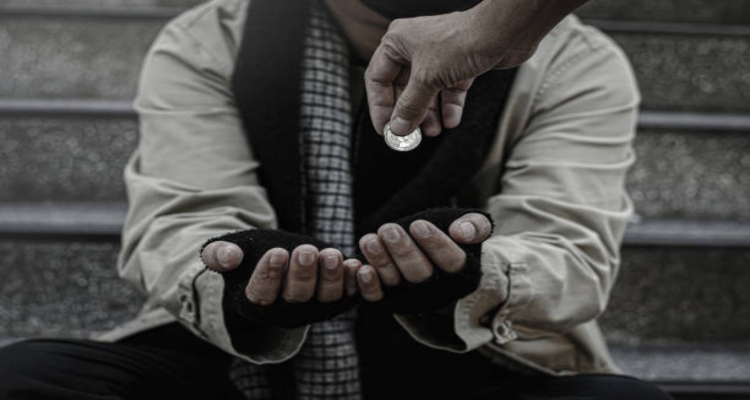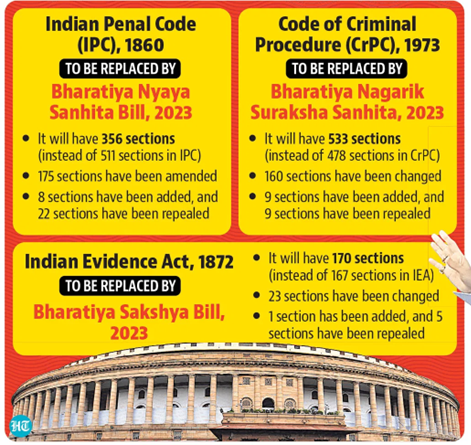- Courses
- GS Full Course 1 Year
- GS Full Course 2 Year
- GS Full Course 3 Year
- GS Full Course Till Selection
- Answer Alpha: Mains 2025 Mentorship
- MEP (Mains Enrichment Programme) Data, Facts
- Essay Target – 150+ Marks
- Online Program
- GS Recorded Course
- Polity
- Geography
- Economy
- Ancient, Medieval and Art & Culture AMAC
- Modern India, Post Independence & World History
- Environment
- Governance
- Science & Technology
- International Relations and Internal Security
- Disaster Management
- Ethics
- NCERT Current Affairs
- Indian Society and Social Issue
- NCERT- Science and Technology
- NCERT - Geography
- NCERT - Ancient History
- NCERT- World History
- NCERT Modern History
- CSAT
- 5 LAYERED ARJUNA Mentorship
- Public Administration Optional
- ABOUT US
- OUR TOPPERS
- TEST SERIES
- FREE STUDY MATERIAL
- VIDEOS
- CONTACT US
After Indore, Bhopal Bans Begging in Public Places
After Indore, Bhopal Bans Begging in Public Places
06-02-2025

Recently in the beginning of 2025, The collectors of Indore and Bhopal districts in Madhya Pradesh have issued orders to prohibit begging under the provisions of the Bharatiya Nagarik Suraksha Sanhita (BNSS), 2023.

Key Provisions:
The orders issued by the district collectors of Indore and Bhopal in Madhya Pradesh are based on Section 163 of the Bharatiya Nagarik Suraksha Sanhita (BNSS), 2023.
- Section 163 of the BNSS, 2023:
- The Section provides powers to district magistrates, sub-divisional magistrates, and other executive magistrates to issue urgent orders to curb nuisance or apprehended danger in a particular area.
- Such orders can be enforced on individuals or groups within a specific area or location.
- Action Under Section 223 of the Bharatiya Nyaya Sanhita (BNS), 2023:
- Those who disobey the orders issued under Section 163 can face penalties under Section 223 of the BNS, 2023.
- Penalties for disobedience:
- Imprisonment for up to 6 months.
- A fine of up to ₹2,500, or both.
- If the disobedience causes danger to life, health, or safety, the punishment can increase:
- Imprisonment up to 1 year.
- A fine of up to ₹5,000.
- Duration of Orders:
- Orders under Section 163 can remain in force for a maximum of 2 months.
- The state government may extend the order for a maximum period of 6 months if deemed necessary.
- The orders can be extended periodically by issuing fresh orders, similar to how Section 144 of the CrPC (Criminal Procedure Code) functions.
Historical Context of Laws Against Begging:
- Bombay Prevention of Beggary Act, 1959:
- The Bombay Prevention of Begging Act, 1959 is a 1st law that was enacted in India to prevent begging. This act was implemented to keep the streets clear of destitute persons (without any money, food or a home), leprosy patients, or those with mental illnesses by sending them to institutions.
- Section 10 of the Act grants the chief commissioner the power to order the detention of incurably helpless beggars.
- Those detained under this provision, categorized as blind, crippled, or incurably helpless, could be detained indefinitely.
- Punishments under the Act: Beggars could be detained in institutions for up to 10 years.
- Legal Implications:
- The law enabled the police to arrest individuals without warrant if they were deemed to have no visible means of subsistence.
- Mumbai, for example, still maintains detention centers for those suspected of being beggars.
- This Act violates constitutional provisions, particularly Articles
19(1)(a) and 21, which safeguard individuals' rights to freedom and life.
- The state is constitutionally responsible for the "relief of the disabled and unemployable" (Article 38).
|
While the Bombay Prevention of Begging Act, 1959 originated in Maharashtra, it has served as a model for similar legislation in other Indian states and union territories. States and UTs that have adopted the Bombay Prevention of Begging Act, 1959:
|
Judicial Interventions:
- Delhi High Court (2018):
- In 2018, the Delhi High Court struck down certain provisions of the Bombay Prevention of Beggary Act, particularly those allowing arrests without warrant for begging.
- The Court said that begging is not a choice, but often a last resort for survival, especially for those in extreme poverty.
- The Court declared that begging should not be criminalized, as it reflects the failure of the state to provide for the basic needs of its citizens.
- However, Section 11 of the Act, which deals with penalties for employing or forcing individuals to beg, was not struck down, allowing enforcement against forced begging.
Other Legislative Efforts and Government Responses:
- The Persons in Destitution (Protection, Care and Rehabilitation) Model Bill, 2016:
- The Bill aimed to repeal the Beggary Act and replace it with rehabilitative measures.
- It proposed setting up rehabilitation centers for the destitute in each district.
- However, the Bill was not pursued after a pre-legislative consultation in 2016.
- Union Ministry’s Campaign (2020):
- The Union Ministry of Social Justice and Empowerment launched a begging-free cities campaign in 2020.
- The campaign aimed to focus on rehabilitation rather than criminalizing begging.
- 10 cities, including Mumbai, were selected to be a part of this initiative.
- Despite these efforts, the Bombay Prevention of Beggary Act, 1959 is still in place in many states, including Maharashtra.
- Mental Healthcare Act, 2017:
- This Act includes provisions for the care of homeless individuals with mental illnesses.
- It ensures that people found wandering or living on the streets due to mental illness receive appropriate medical care and rehabilitation.
Current Situation in States Regarding Begging:
- Maharashtra: The Bombay Prevention of Beggary Act continues to be enforced, with detention centers for suspected beggars.
- Delhi: The Delhi High Court’s decision in 2018 decriminalized begging but upheld the criminalization of forced begging.
- Madhya Pradesh (Indore & Bhopal): The district collectors have invoked Section 163 of the BNSS, 2023 to prohibit begging, marking a significant step in using the new law to address the issue.
|
Also Read |
|
UPSC Foundation Course |
|
| CSAT Foundation Course | |




